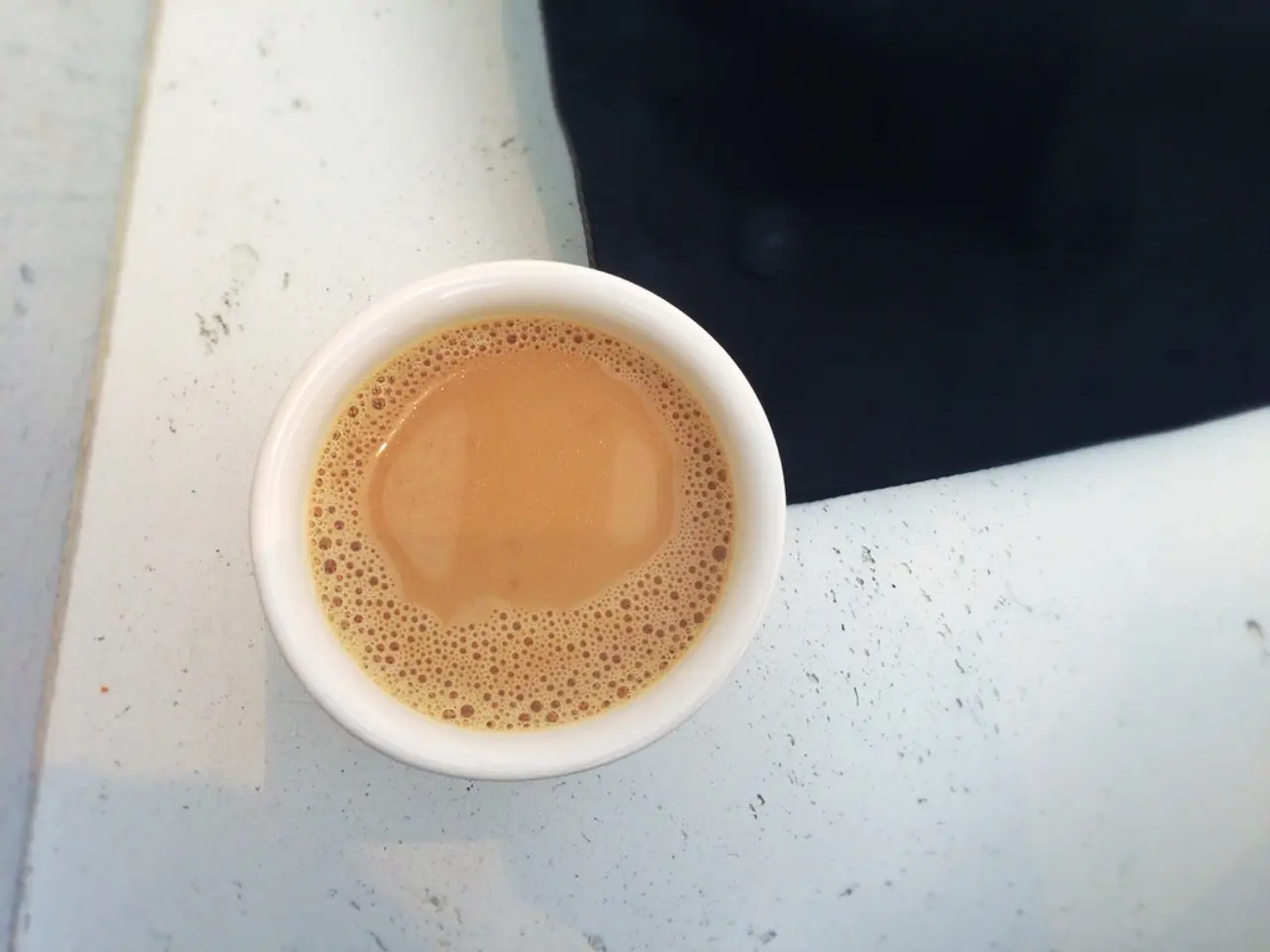Tea's Effect on Cognitive Function and Work Performance: An Examination of Creative Stimulation
In the bustling world of work, many employees often find themselves in need of an energy boost, especially in the afternoons. One popular choice is coffee, but a lesser-known alternative is gaining traction for its unique benefits – tea.
Tea, derived from the plant Camellia sinensis, has been used as a medication in the past, and its modern-day appeal lies in its ability to enhance creativity and productivity. This is primarily due to the combination of two key components: caffeine and L-theanine.
Caffeine, a well-known stimulant, increases alertness, reduces mental fatigue, and sharpens attention, providing the necessary energy boost to sustain motivation and focus during long, demanding tasks. However, caffeine can sometimes cause anxiety or jitteriness, which may hinder a relaxed, open mindset required for creativity.
Enter L-theanine, an amino acid unique to tea. This compound fosters a state of relaxed alertness by promoting alpha brainwave activity, associated with calm focus and creative thinking. L-theanine enhances cognitive performance by increasing attention span and reducing stress, enabling smoother, more fluid creative work without the agitation linked to caffeine alone.
The combination of L-theanine and caffeine optimizes productivity and creativity by enhancing sustained attention and mental stamina, reducing caffeine-induced anxiety and jitteriness, promoting a calm, alert mental state beneficial for creative insight and flow, and supporting stress reduction and improved mood, which facilitates overcoming creative blocks.
A recent study involving two groups of students demonstrated the positive impact of tea on creativity. The tea drinkers performed better on creativity tests than their water-drinking counterparts. This suggests that tea positively affects the human mind due to the helpful substances present in tea.
While tea contains caffeine, it has less than coffee, making it a healthier alternative for those seeking an energy boost. Tea also contains polyphenols, beneficial to the human body and known for their role in preventing numerous diseases.
It's important to note that while tea can aid in boosting creativity and productivity, it's not a substitute for proper rest. Taking short breaks while working and ensuring at least eight hours of sleep for long-term health are essential.
In conclusion, tea supports creativity and productivity by leveraging caffeine’s energizing effect moderated by L-theanine’s calming, focus-enhancing properties, making it particularly effective for tasks requiring prolonged concentration, creativity, and mental stamina. So, the next time you're in need of a productivity boost, consider reaching for a cup of tea instead of coffee.
[1] Study on the Effects of L-Theanine on Cognitive Functions [2] The Effects of L-Theanine on Mood and Cognition [3] The Combined Effects of L-Theanine and Caffeine on Cognitive Performance and Mood [4] L-Theanine Reduces Stress Responses in Humans
- The unique blend of caffeine and L-theanine in tea not only increases productivity by providing an energy boost and reducing mental fatigue, but also promotes a calm, alert mental state conducive to creative insight and flow.
- Incorporating tea into your workplace-wellness routine, along with health-and-wellness practices such as fitness-and-exercise and mental-health support, may improve your personal-growth and productivity.
- To maximize the benefits of tea for creative work, consider combining it with education-and-self-development activities to foster a stimulating environment for mental growth and problem-solving.
- Regular tea consumption, in conjunction with a balanced diet, exercise routine, and good sleep habits, can contribute to overall fitness-and-exercise, health-and-wellness, and productivity.







